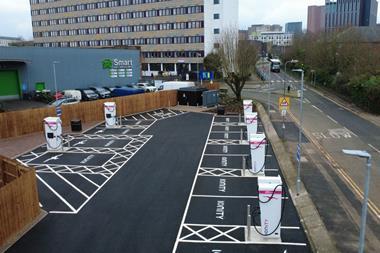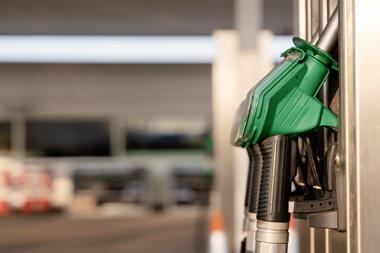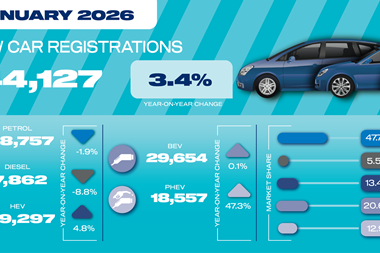Petrol and diesel vehicles are predicted to be with us for a long time yet as electric vehicles remain a controversial subject with sales set to fall far short of official expectations.
A new report commissioned by UKPIA and the RAC Foundation, ‘Powering Ahead’, predicts that pure electric vehicles are likely to account for just 5-15% of new car sales by 2020, with some experts predicting sales as low as 40,000 a year. Last year two million new cars were sold in the UK.
Much of the limited utility of pure electric vehicles comes down to simple physics, according to the report. In terms of energy density, liquid fuels are still dozens of times better than electricity stored in batteries; and big question marks still remain over how they electric vehicles will perform after several years in terms of day-to-day wear and battery rundown.
The future mass-market success of electric vehicles is highly dependent on breakthroughs in battery technology, both to increase energy density and to reduce cost.
“In the longer term, the likely mix of technologies is extremely difficult to predict,” said the report. “The speed with which plug-in hybrids and pure electric vehicles achieve significant market shares is highly dependent on their total cost of ownership in comparison to that of more conventional alternatives. This is, in turn, dependent on factors such as oil prices, further battery and fuel cell cost reductions, and government policies.”
Professor Stephen Glaister, director of the RAC Foundation, said: “Estimating future sales of electric cars is not quite like sticking the tail on the donkey, but not far from it. There are so many variables to factor in that even those paid to predict the future of low-carbon vehicles cannot agree on what is in store. The only common ground among the experts is that we are unlikely to see as many electric cars sold as politicians might like.
“It is more than two years since the government introduced the plug-in car grant. Yet even with subsidies of £5,000 per vehicle available only 3,600 cars have been purchased through the scheme.
“This report concludes that the key to making electric cars a commercial success is a major advance in battery technology. Until then these vehicles are likely to remain too expensive and too impractical to penetrate the mass market.
“Eventually there will need to be a step change in the type of cars we drive. To help achieve this, the RAC Foundation believes a target for new car CO2 emissions of nearing 60 g/km is needed for 2025. This challenging goal would help preserve the impetus car manufacturers are already demonstrating in terms of technological advancement. Electric cars might eventually come into their own: but there is no guarantee that they won’t be beaten at their own game by other low-carbon technologies.”
Chris Hunt, director general of the UKPIA, said:“The key conclusions of the publication are that conventional petrol and diesel cars are expected to remain the dominant technology in the overall vehicle fleet until at least 2030 and that advances in fuel economy will be primarily achieved by continuing improvements to existing engine technology and greater focus on vehicle efficiency through reduced weight and drag.
“The study also suggests that about 60% of vehicles in 2030 are likely to be powered, either in part or in full, by internal-combustion engines. Although, the factors which appear to have the strongest influence over all predictions are, firstly, future policy, and secondly, the likely speed with which breakthroughs in technology will be achieved.”

































No comments yet